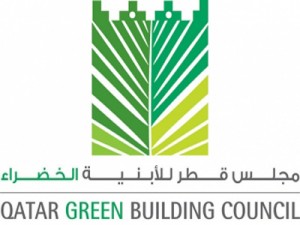
Qatar Green Building Council (QGBC), a member of Qatar Foundation for Education, Science and Community Development, hosted an event entitled “Water: the Inconvenient Truth” to find positive solutions to water sustainability challenges in Qatar.
The seminar, which brought together public and private organizations, was held at Hamad bin Khalifa University’s student center at Education City and saw the participation of more than 50 sustainability and conservation technology experts.
Under the umbrella of QGBC’s Water Interest Group, representatives from the Chartered Institution of Building Services Engineers (CIBSE), Arup, Parsons Brinkerhoff, Texas A and M University at Qatar, Kahramaa and Qatari Diar Vinci Construction (QDVC) gathered to discuss Qatar’s water needs, share their respective organization’s insights into the matter, and propose ways to change the region’s perceptions and behaviors towards water.
QGBC Director Eng. Meshal Al Shamari welcomed participants and set out the seminar’s aims and objectives. “QGBC is committed to bridging the gap between private sector industry professionals and public sector officials in government. Our awareness-raising program includes holding interactive workshops like this, and offering the public the opportunity to listen, evaluate the solutions, and take part in the conversation with the experts.
“The discussions revealed the interest in this pressing regional challenge and depth of thinking in Qatar around the issue. QGBC will bring together the outcome of these discussions into papers which will be presented to Qatar’s decision makers to assist with development of long-term solutions.”
Presenting at the seminar, Arup senior consultant of environment and sustainability Jamila El Mir said: “Qatar faces two main challenges in terms of water: the local climate and severe water scarcity that we cannot deal with easily, and the government’s ability to absorb all the costs of providing sufficient water resulting in Qatar having one of the highest water footprints per capita in the world.
“All other challenges such as network losses, inefficient building design and operation, and excessive irrigation in the public realm are not atypical challenges all around the world. They can be dealt with and are being dealt with in Qatar, one step at a time,” El Mir said.
She called for public education and the importance of local solutions when tackling water scarcity in Qatar. “Increasing awareness about the importance of water savings at an individual level is key to the process, but will take time,” she said. “Meanwhile, local authorities can further increase the impact of their initiatives by making use of the local expertise in the private sector. This is one of the main points: how can the private sector support the government and contribute to optimizing water conservation in Qatar?” QGBC’s Water Interest Group was launched in May 2011 by volunteer engineers, suppliers and senior level executives who are passionate about water and its conservation.
In line with the sustainability pillars of the Qatar National Vision 2030, the seminar forms part of QGBC’s commitment to host educational workshops and events highlighting sustainability issues, and provide a viable platform in which to discuss and exchange environmentally-friendly practices and policies.
During the event, QGBC held five round table discussions with each focusing on a different response to addressing water scarcity in Qatar. Topics included policy, market conditions, education and public awareness, design and construction practices, and availability of information.
Research papers will be developed from the information gathered at each round table discussion and in due course shared with state and private organizations as well as the public as solutions to Qatar’s water scarcity challenges.
Source : Qatar News Agency












